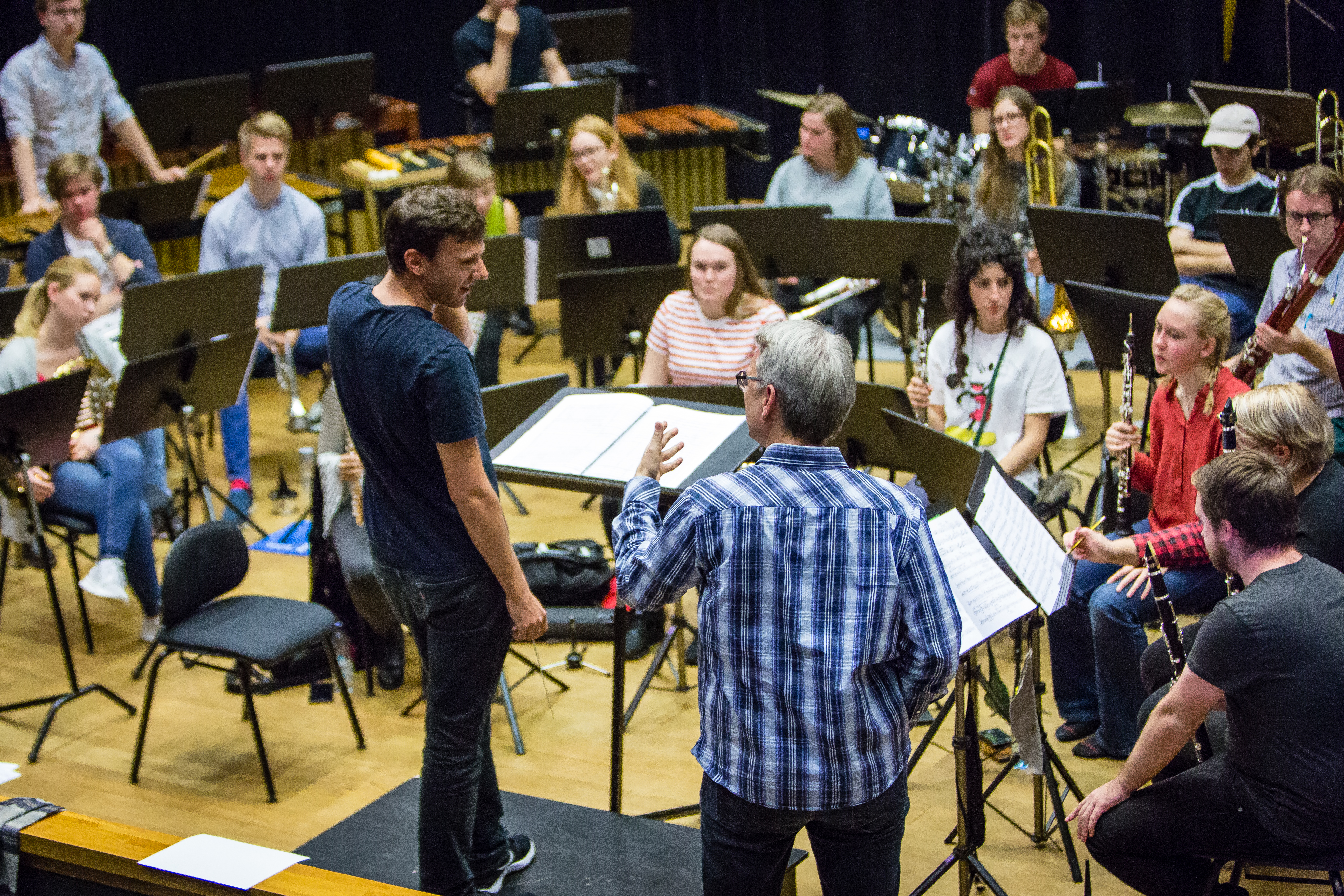Attendance requirements at the Faculty of Performing Arts (UK) are an elaboration of the course descriptions' work requirements, which entail compulsory attendance; Regulations relating to studies and examinations at the University of Stavanger § 3-8.3. These rules are intended to address the particularity of UK performing studies.

Valid from 01.01.2024 following a decision in the Study Portfolio Committee the Faculty of Performing Arts (UK) 14.11.2023.
Please note that the document on this page is an unofficial translation. Where there are linguistic differences the Norwegian version of the regulations is the official version. Please note that each student is responsible for acquiring the information needed, including the studies and exam regulations.
1 Attendance requirements for theory subjects.
1.1
All teaching at UK is normally compulsory. Any exceptions are stated in the course description. All courses shall have a semester plan at the start of the semester. In order to gain access to the exam in theoretical subjects, the student must be able to document at least 80% attendance in classes within the course code, in addition the other work requirements in the course must be approved.
1.2
The teacher registers absences in all courses. In courses where several teachers are involved, the person responsible for the course must keep a total overview of absences. The person responsible for the course is responsible for how the absences are registered.
1.3
Within 20 % absence (approved absence percentage), there is normally no differentiation between reasons for the absence.
1.4
If absence from teaching exceeds 20%, this may affect the individual's study progress and access to the exam in the course. The main rule is that the student loses the right to take the exam in the relevant course. In special cases, the lecturer may grant exemptions.
2 Absence from projects and executive topics
2.1
For all music performance classes as well as all performing projects, 100% attendance is required. No absence is allowed. The student shall notify the teacher and others involved as soon as possible if the student is prevented from attending. Regarding individual teaching, moving the class should be considered. Sick leave with a doctor’s note and other documented special reasons for absence must be submitted in Digital Student Expedition.
2.2
For dance courses, the 100% rule is applied to certain projects, while 20% absence from ordinary teaching in performing courses is permitted. These are therefore subject to the guidelines described in point 1.
2.3
Absences must be recorded for all projects. Project Owner or sub-project owner are responsible for roll call.
Projects should preferably be made known to affected students at the beginning of each semester, with a defined period during which the students will be available. Students can find this information in the Academic Year Calendar. Projects can also be announced with a shorter time horizon, but no later than three weeks before the start of the project.
Normally there must be a detailed test plan (including, for example, participants, time, place, notes, equipment, etc.) no later than three weeks before the start of the project. Once the plan has been set, there may be changes for rehearsal times within the stated timeframe for the project. Students have a commitment within the framework.
3 General arrangements
3.1
In addition to the above-mentioned rules for absence, students may apply for up to eight days' absence each academic year for off campus, distinctly professional and performing activities, not organized by UK. This absence must be justified and applied for in the Digital Student Expedition as early as possible and no later than two weeks before it begins. The student must acquire the teaching material on their own. NB. Section 3.1 does not apply for students taking enrolled in the one-year PPU programme.
3.2
UK's activities include collaboration with external partners. The head of department may decide that the student should participate in alternative teaching/academic activities off campus, which do not result in absence from teaching at UK given at the same time. This applies to projects initiated and prioritized by or in consultation with the head of department. This may, for example, be a recruitment tour, off campus teaching organized by UK, or practical training projects organized by UK in collaboration with external partners. In such cases, the head of department shall report this to all teachers concerned. The student is required to acquire the teaching material on their own.
3.3
For students who are on long-term sick leave, a plan should be prepared for how the person in question should behave during the sick leave period. A meeting is held between the student and the management where it is outlined what the student can participate in. This plan is assessed at regular intervals, approx. every 2-3. week. With such a plan, the opportunity to be able to sit for the exam will be present despite longer sick leave from compulsory teaching activities.
3.4
Students lacking attendance as mentioned above may risk losing the right to take the exam and having to take the course again. The main instrument courses in the first department must be passed in order to proceed to the second department. Other progression requirements in courses and between departments are stated in the study plan and course descriptions
3.5
Students are responsible for ensuring that the limits for permitted absence are not exceeded.
